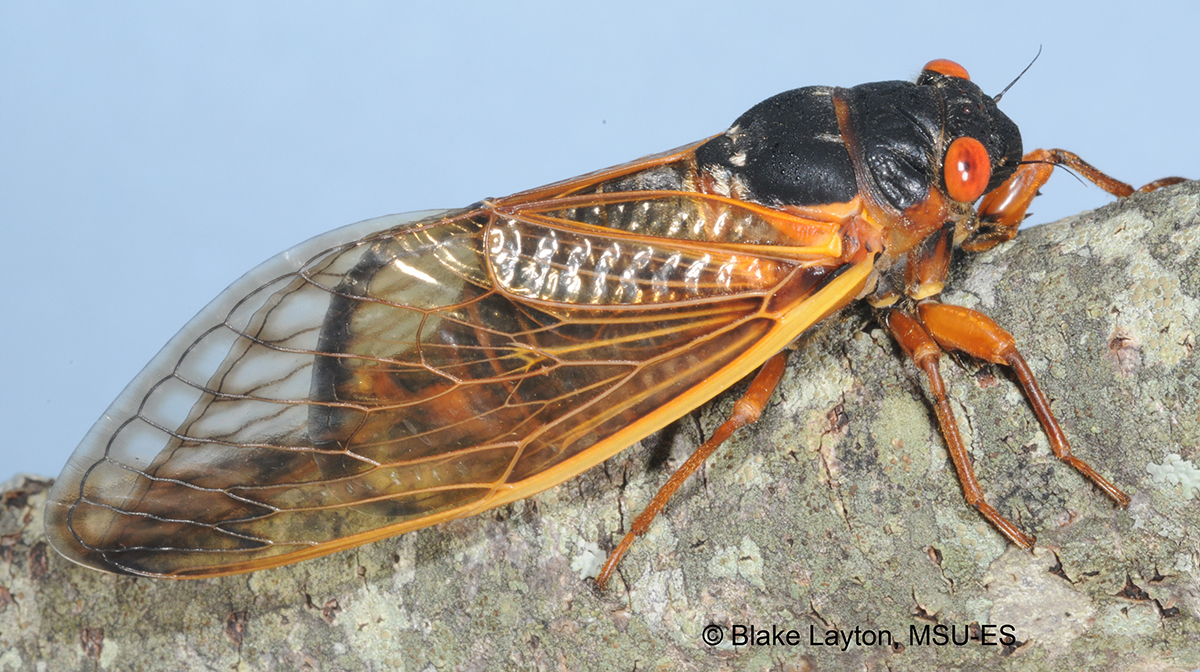Periodical Cicadas, No 4
Related News
June 4, 2015
May 19, 2015
May 15, 2015

Magicicada spp.
What’s making all that noise up in the trees? This spring, much of Mississippi, along with portions of seven other states, will experience an emergence of 13-year cicadas. This is periodical cicada Brood XXIII, also known as the Lower Mississippi Valley Brood. For the past 13 years, the nymphs have been feeding quietly underground on the roots of hardwood trees, but this spring, they will emerge through ½ inch diameter holes, shed their nymphal skins, and become adults to mate and lay eggs. Adults only live a few weeks, but the males make a lot of noise while they are out as they sing to attract mates. Individual cicadas can sing pretty loud, but population densities can exceed one million cicadas per acre, and the combined songs of this many cicadas can drown out backyard conversations.
Although they look a lot alike, there are actually four different species of periodical cicadas in this brood. Males and females distinguish among species by differences in songs and other behavioral ques. Last year seven counties in southwest Mississippi experienced an emergence of Brood XXII cicadas, and 17 counties in northeastern Mississippi saw Brood XIX adults emerge in 2011. This year’s emergence of Brood XXIII will occur in a lot more counties, but will not be statewide. Although affected by weather conditions, emergence will likely begin around the end of April and activity will extend through most of May.
Periodical cicadas are an amazing natural phenomena that only occurs in the Eastern United States. Although they are largely harmless, periodical cicadas cause an unusual type of damage to fruit and ornamental trees. The females lay their eggs in pencil-sized twigs of hardwood trees and these egg-laying scars can cause twigs to break, leaving eight to twelve inch sections of broken brown twigs hanging in trees. This twig-flagging can be extensive and can adversely affect growth and yield of affected fruit trees. Fortunately, this problem only occurs at 13 year intervals. Covering susceptible trees with insect proof netting before cicadas begin laying eggs is the only effective “treatment” for backyard trees.
See Bug-Wise Newsletter No. 1 of 2015 for more information on periodical cicadas. Although there are 12 broods of 17-year cicadas, which occur in more northern states, there are only 3 broods of 13 year cicadas, and Mississippi is the only state in which all three occur. To learn even more about periodical cicadas, check out the magicicada.org site.
Blake Layton, Extension Entomology Specialist, Mississippi State University Extension Service.
The information given here is for educational purposes only. Always read and follow current label directions. Specific commercial products are mentioned as examples only and reference to specific products or trade names is made with the understanding that no discrimination is intended to other products that may also be suitable and appropriately labeled.